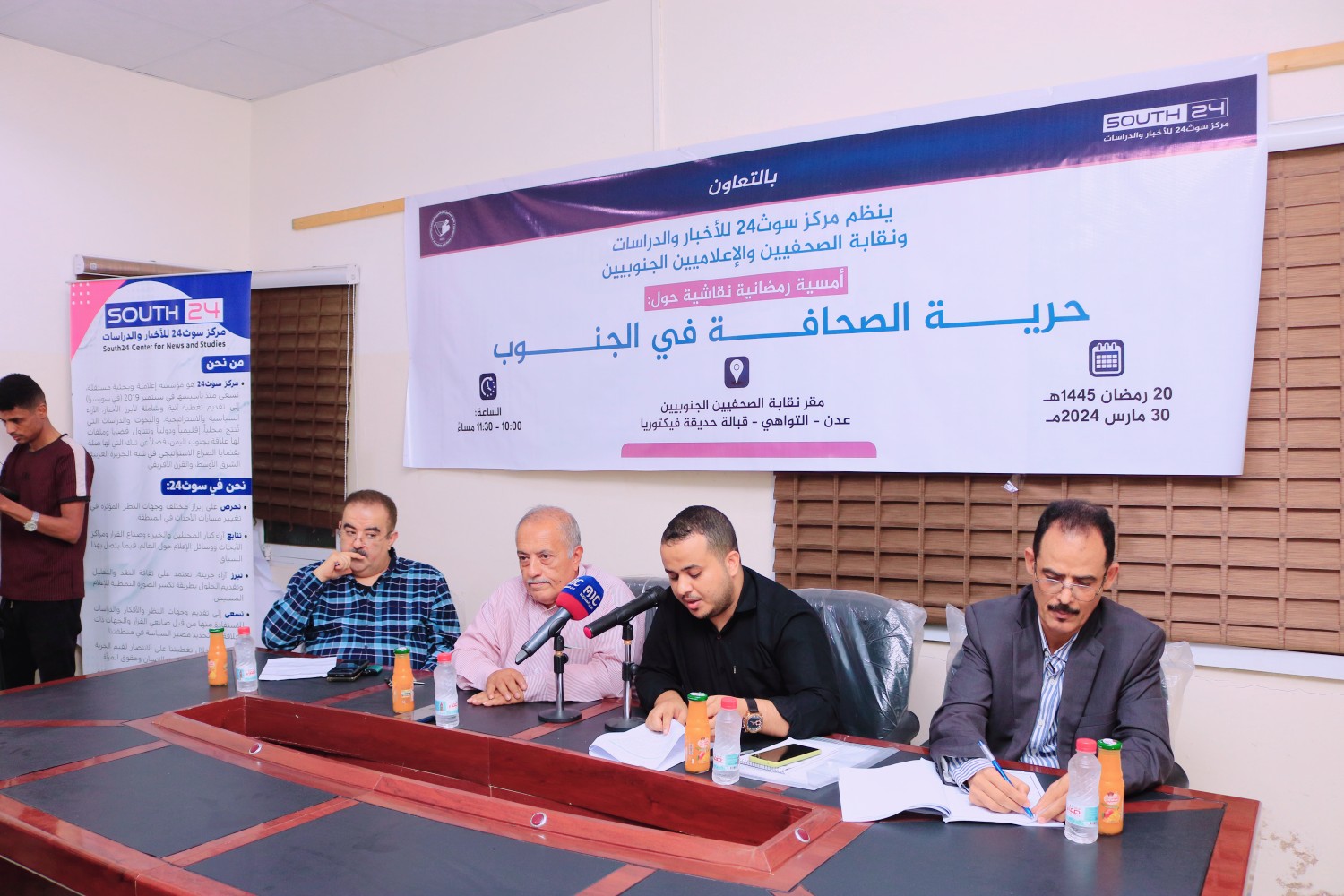
The session – South24 Center
Last updated on: 02-04-2024 at 12 AM Aden Time

Aden (South24)
On March 30, South24 Center for News and Studies organized a discussion session on press freedom in South Yemen, entitled “Freedom of the Press in South”, in cooperation with the Southern Journalists Syndicate (SJS).
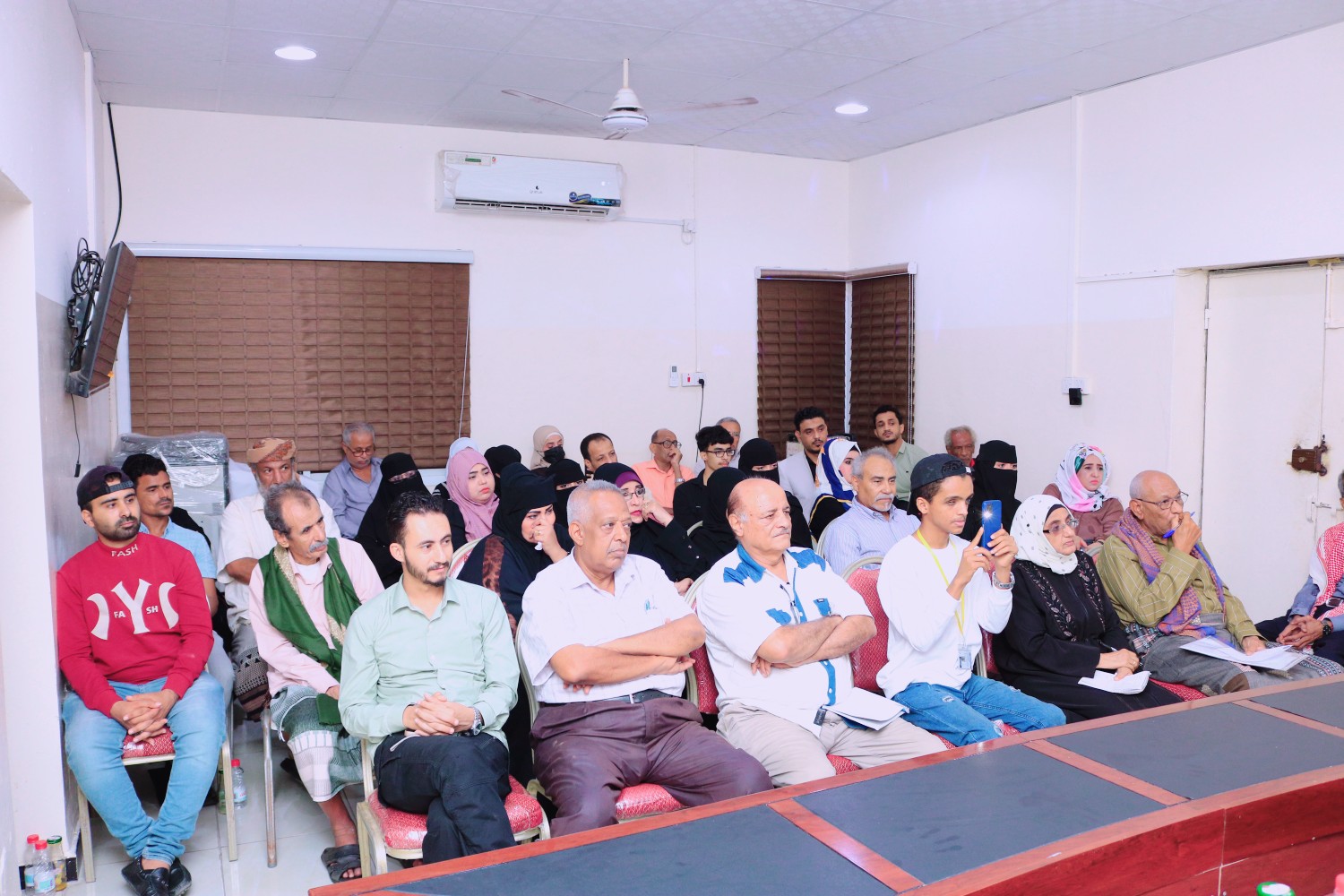
The session – South24 Center
The session, which took place at the SJS headquarters in the capital, Aden, included three main topics of discussion:
1- The reality of press freedom in Yemen in general - the regional director of South24 Center for News and Studies, Jacob Al-Sufyani, as a keynote speaker.
2- Press freedom in the historical stages of South - Assistant Secretary-General of the SJS, Nasr Bagharib, as a keynote speaker.
3- Recommendations for promoting press freedom in South - Deputy Editor-in-Chief of Al-Ayyam newspaper, Hesham Bashrahil, as a keynote speaker.
#Aden
— South24 | English (@South24E) April 1, 2024
AIC (@aicadentv) coverage of the “Press Freedom in South” session, organized by the South24 Center and the Southern Journalists Syndicate on Saturday evening#south24 pic.twitter.com/eZUodxaeUE
The discussion session marked the first joint activity between South24 Center and the SJS and initiated cooperation between the two organizations, which the SJS President, Aidrous Bahashwan, spoke about during the session’s opening.
Bahashwan highlighted the work done by his syndicate to promote the space for press and media freedoms in Aden and South, and the progress made in this domain since the syndicate’s founding in January 2023.
The reality of press freedom in Yemen in general
During the first segment, Al-Sufyani said, “Without a doubt, Yemen has one of the worst indicators in the world regarding freedoms in general, including press freedom”, referring to the Press Freedom Index for 2023 issued by Reporters Without Borders, which placed Yemen in 168th place out of 180 countries.
The spokesman explained that, according to a report issued by the advocacy group Women Journalists Without Chains, the number of violations recorded in Yemen since 2014 has reached 1,657. This number included 51 victim deaths and hundreds of journalists being subjected to arrests, enforced disappearances, trials, attacks, and displacement. Multiple cases involved the shutting down or looting of newspaper and satellite channel headquarters.
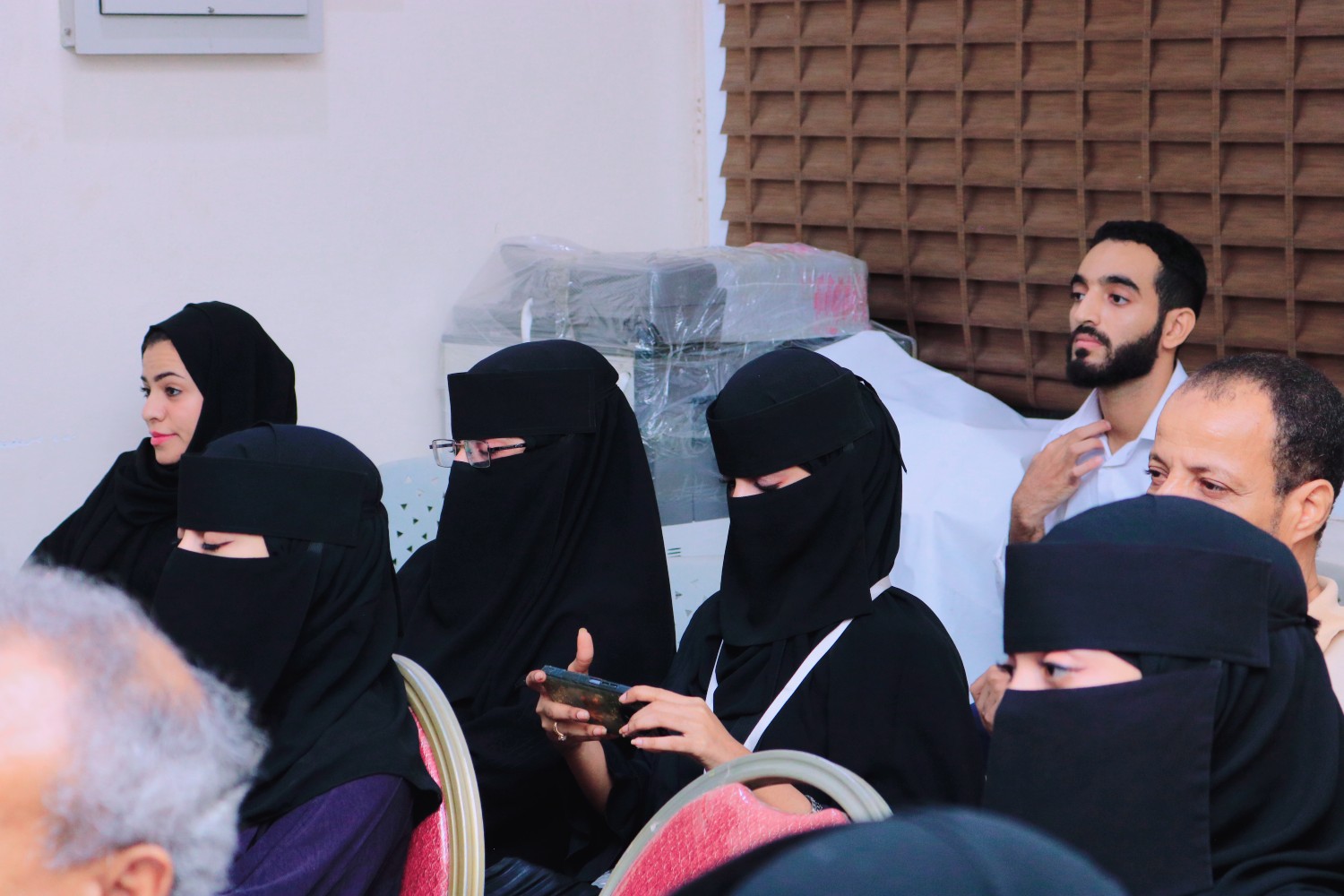 The session – South24 Center
The session – South24 Center
Al-Sufyani pointed to other relevant reports and statistics issued by accredited international centers and observatories.
He discussed the distribution map of press freedom violations in terms of geographical location and the parties controlling each territory. Al-Sufyani cited 2023 data from the Women Journalists Without Chains report, which indicated that the Houthis were responsible for 35 violations (49.29%), and pro-Yemeni government military formations for 20 (28.16%). Forces affiliated with the Southern Transitional Council (STC) committed 12 violations (16.90%), while three cases were attributed to unknown persons (4.22%).
According to Al-Sufyani, the distribution map of violations shows that about 80% were in northern Yemen, where the Houthis and pro-Yemeni government forces operate. The Houthis top the list of violations, which include murders, detaining journalists as prisoners of war, and exchanging them in prisoner exchange deals, as was the case with journalists Abdul Khaleq Omran, Tawfiq Al-Mansouri, Harith Hamid, and Akram Al-Walidi, who were released by the Houthis in a prisoner exchange deal in April 2023.
Al-Sufyani pointed out that violations have occurred in areas controlled by forces loyal to the member of the Presidential Leadership Council (PLC) Sultan Al-Arada in Marib, as shown by reports. There have also been recorded cases of unlawful arrests in Aden - such as that of activist Ahmed Maher, who was accused of crimes related to terrorism but has yet to see a fair trial - and of journalists in Mukalla and Hadramout in the previous period.
Regarding freedom of the press in Aden, South Yemen, Al-Sufyani said that although it is considered a pioneering model today, organization is needed to prevent it from falling into chaos and to ensure that the rights of others are not violated, something which the National Southern Media Authority plays an important role in. However, press freedom needs to be strengthened in other governorates in South.
Conversely, according to him, freedom of the press in North Yemen, including Sanaa, is almost non-existent, as the Houthis do not allow any coverage or independent journalism, and fully direct all press activity in accordance with their own desires, while exercising severe censorship. This includes the blocking of media websites, as happened with South24 Center recently, in clear violation of the press freedom and expression stipulated in Yemeni and international laws.
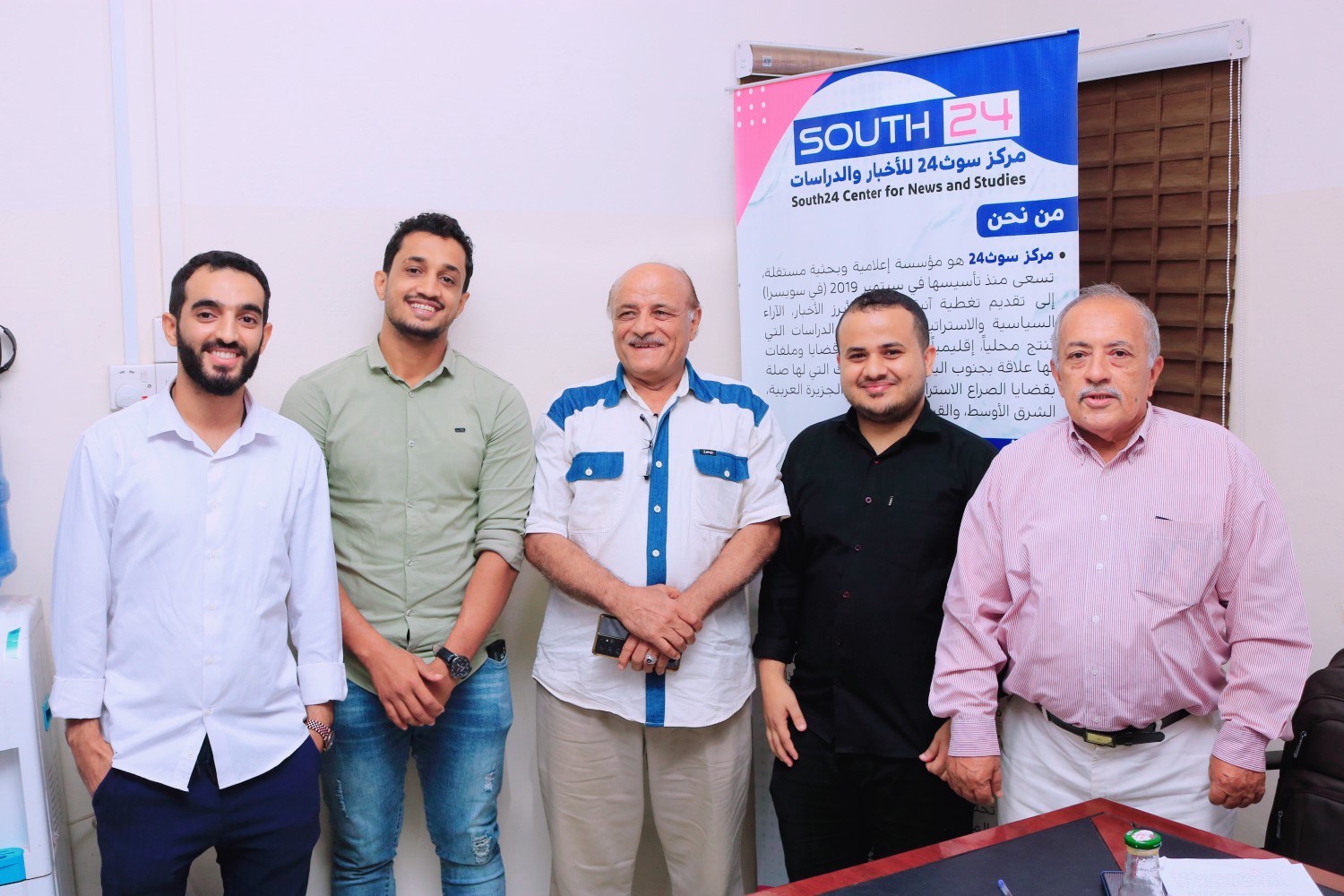 The session – South24 Center
The session – South24 Center
Press freedom in the historical stages of South
In the second segment, Nasr bin Mubarak Bagharib presented a research paper entitled “Freedom of the Press in South through Historical Stages: A Close Critical View.” The paper featured six sections:
1- The legal framework within which journalistic violations take place.
2- Press freedoms in South during the British colonial period.
3- Post-independence press freedoms in South [1967 – 1990].
4- Press freedom in South during the era of Yemeni unity.
5- Post-2015 War press freedoms in South.
6- Press freedoms in South during 2024.
In the first section, Bagharib presented a definition of press freedom and elucidated the concept of it, pointing out that it is not absolute freedom, and that responsibility falls on the press to respect the rights of others. Bagharib enumerated the roles of journalism, such as disseminating news and information, and promulgating culture, thought, and science. He pointed out that a journalist’s obligations require working within the framework of the law and respecting public rights and duties, as well as the dignity and privacy of others.
In the second section, he referred to the earliest bulletins and newspapers during the British colonial era of South Yemen, which lasted for more than a century, pointing out that there was a margin of freedom at that time that the colonizer employed to serve its goals, including transmitting news of its victories alongside the Allied axis in World War II.
Regarding press freedoms in the post-independence South, Bagharib referred to the law nationalizing publications and newspapers, and the monopoly of the socialist regime at the time on press and media activity in the name of the state, with some justifications at the time related to fears of conspiracies against the nascent state.
Bagharib said that the era of Yemeni unity was the worst in terms of freedom of the press in South, mentioning the names of journalists who were subjected to arrest and torture by the agencies of the Ali Abdullah Saleh regime, especially those who were part of the peaceful Southern movement that called for the return of South as a state. He pointed to the storming of the famous Al-Ayyam newspaper in 2009 in Aden under light and medium fire by soldiers of the former regime, which led to casualties.
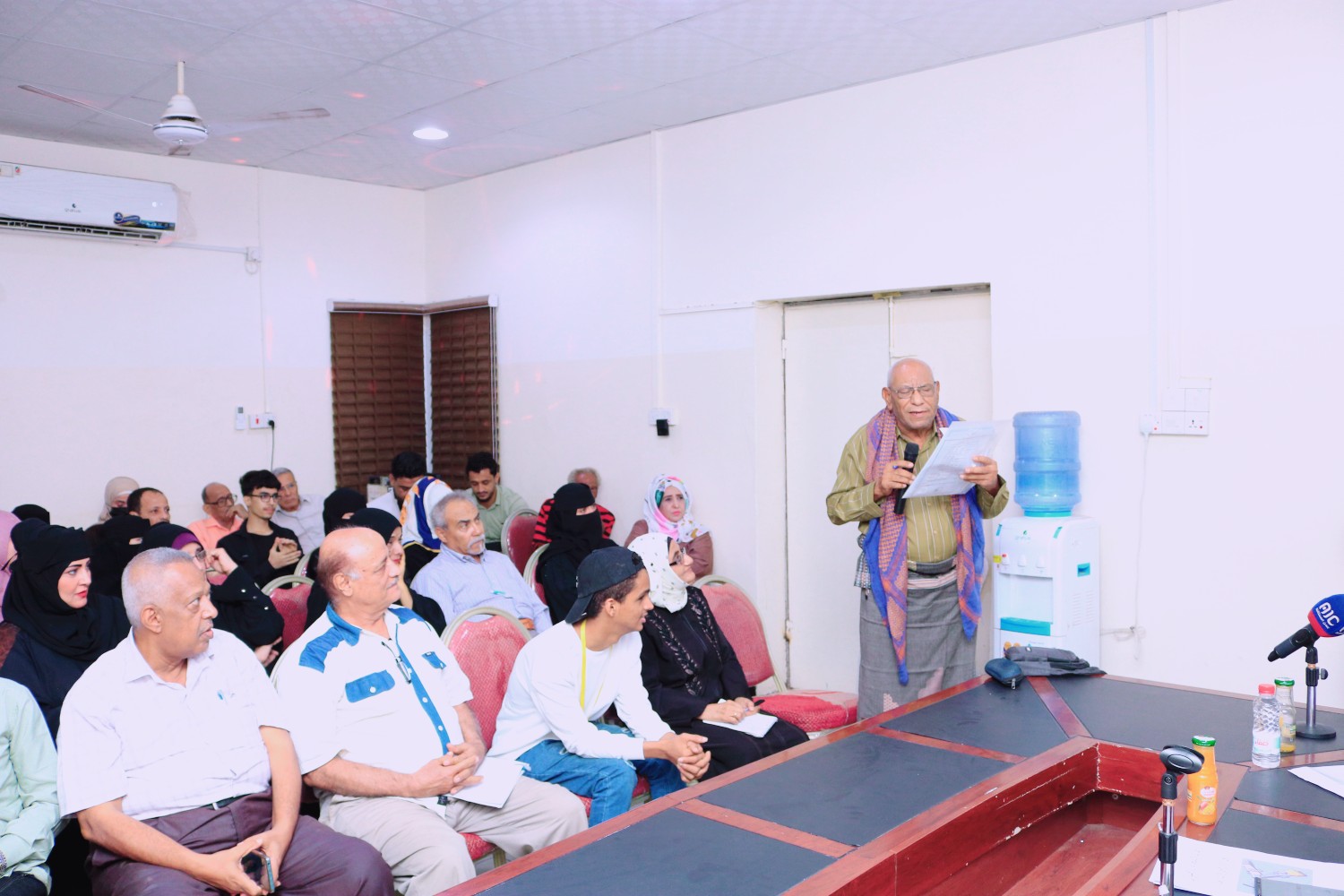
The session – South24 Center
Post-2015, Bagharib said that the end of Northern military control over Aden and most of South helped to enhance freedom of the press and opinion among Southerners, with serious violations against journalists in Aden and South committed by the Houthis or other parties that opposed the STC, after its formation in 2017.
Speaking about the present, Bagharib suggested that press freedom in South is in a flourishing phase, as the STC, which controls the land, supports the freedom of the public space, with necessary restrictions imposed in the name of Southern national security and due to open fronts with internal and external opponents, as he put it.
Recommendations to promote press freedom in South
In the third section, Bashrahil spoke about the three pillars of media freedom, which are:
1- Financial independence of media institutions.
2- The commitment of the heads of media institutions to publish opinions that differ from their own.
3- Politicians’ commitment to the text of Article 6 of Yemeni law, which affirms the state’s work in accordance with the Charter of the United Nations, the Universal Declaration of Human Rights, the Charter of the League of Arab States, and the generally recognized rules of international law, and Article 42, which states that every Yemeni citizen has the right to contribute to political, economic, and cultural life. The state guarantees freedom of thought and expression of opinion within the limits of the law and the constitution, whether verbally, through writing, or via photography.
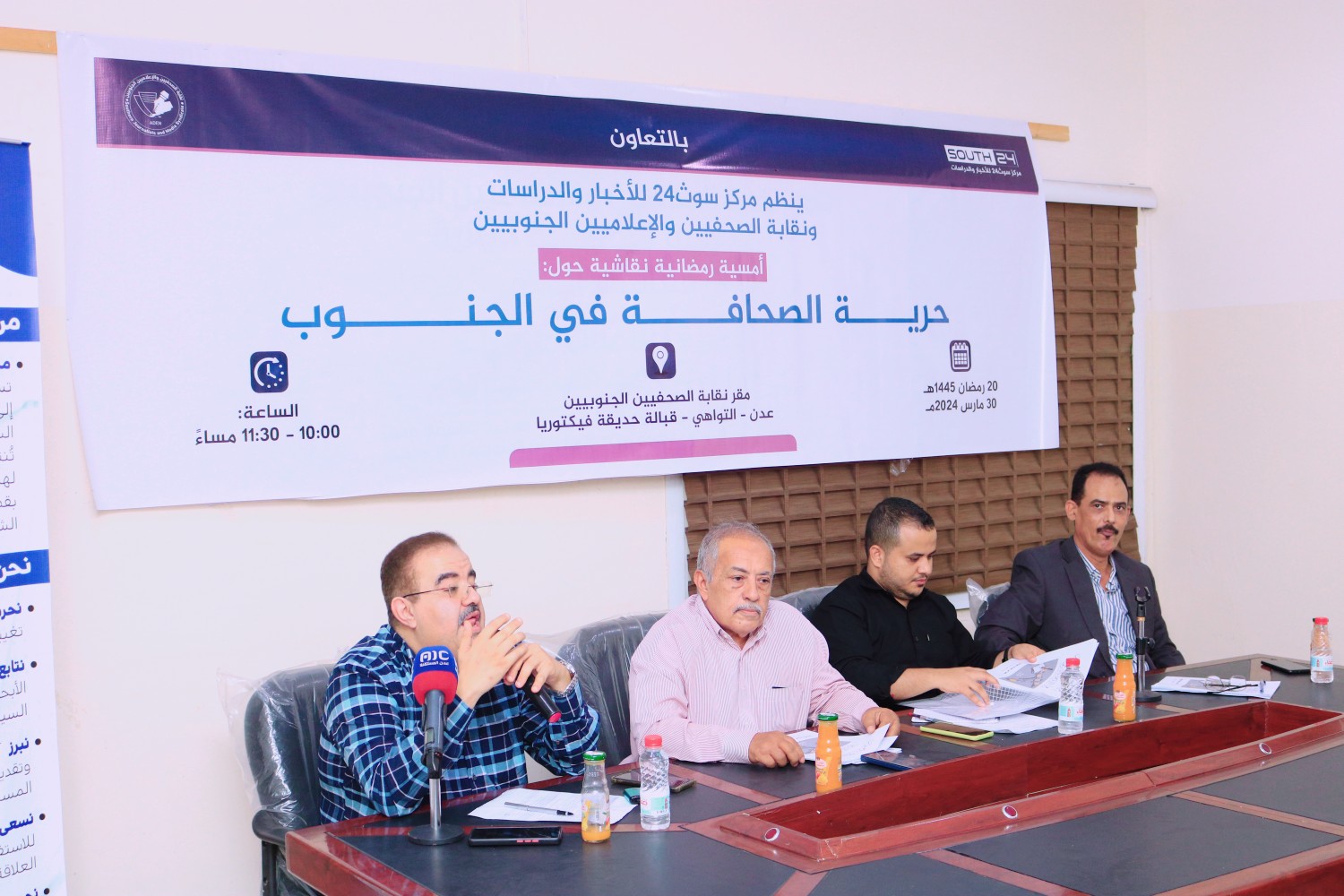
The session – South24 Center
Bashrahil referred back to the case of Ahmed Maher and his arrest by Aden security services in August 2022, emphasizing the importance of a fair trial if he is found guilty. He underscored the need to not leave his case to be exploited by opposition parties to attack South and the STC.
The speaker made several recommendations for enhancing press freedom in South, including:
- Training security forces and security and military leaders on the necessity of adhering to the law and the constitution.
- Freedom to obtain information from its source.
- Training the security services of sovereign and public facilities regarding the right of journalists to enter and obtain information without judicial permission, in addition to facility managers or ministers.
- Preparing the websites of journalistic institutions to transform into profitable companies that achieve financial independence.
- Pushing toward the establishment of companies specialized in promotion and advertising to serve websites and newspapers operating in the country.
- Qualifying young journalists in the provisions of the Constitution and the law related to their work and obliging them to respect them.
- Combating blind fanaticism and promoting logicism in news services.
Following the talks on the three topics, the roughly 40 attendees, which included journalists and academics, were given the opportunity to offer their contributions related to the discussed topics. The attendees expressed a strong appreciation of the unique discussion and the importance of holding such sessions.
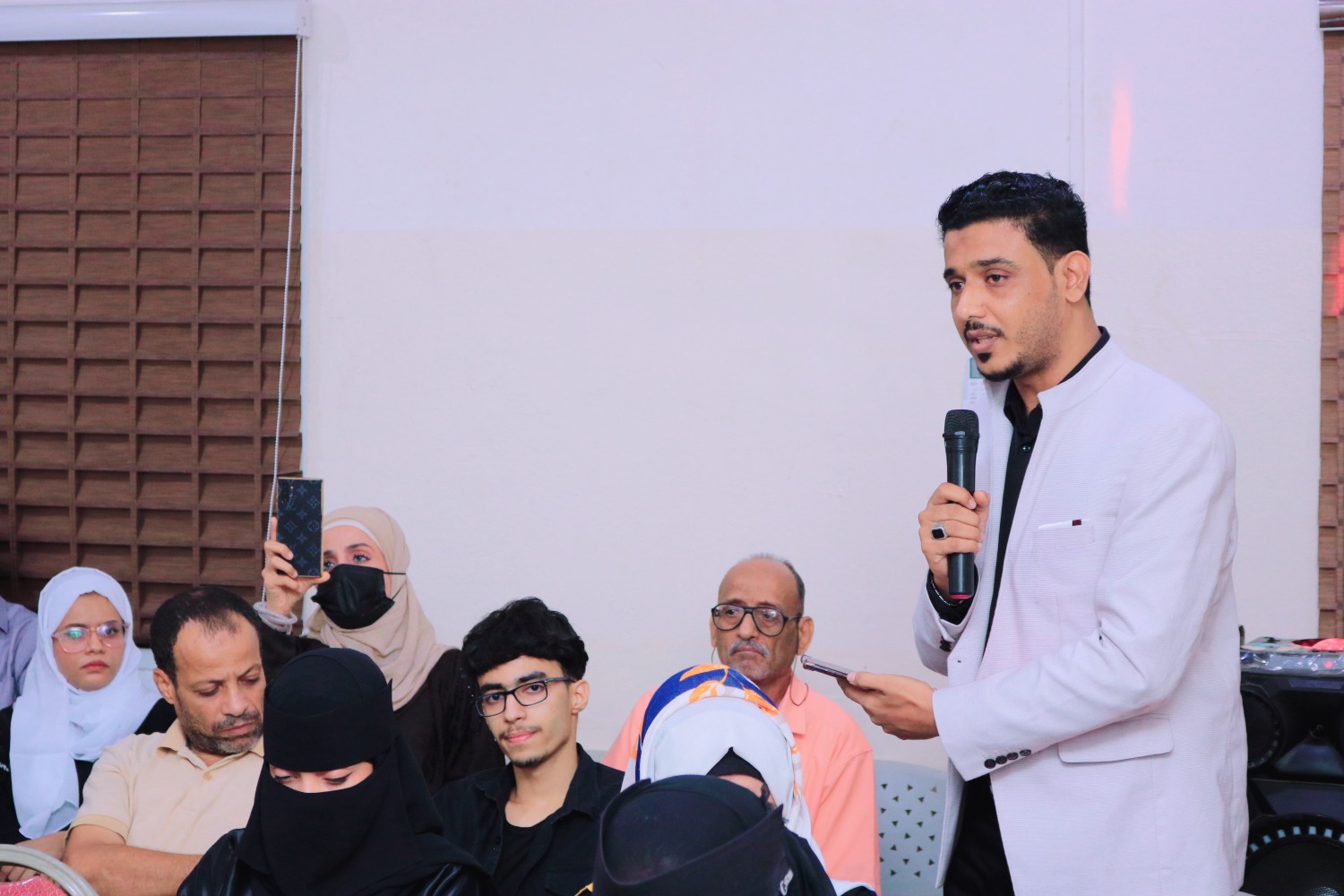 The session – South24 Center
The session – South24 Center
South24 Center